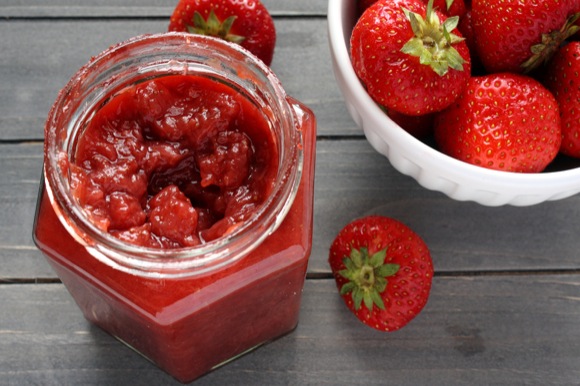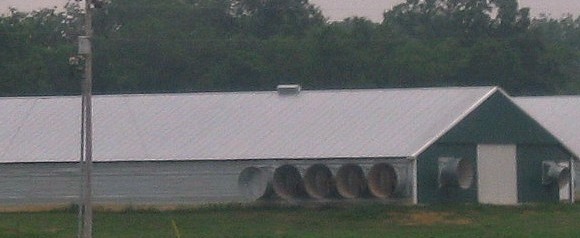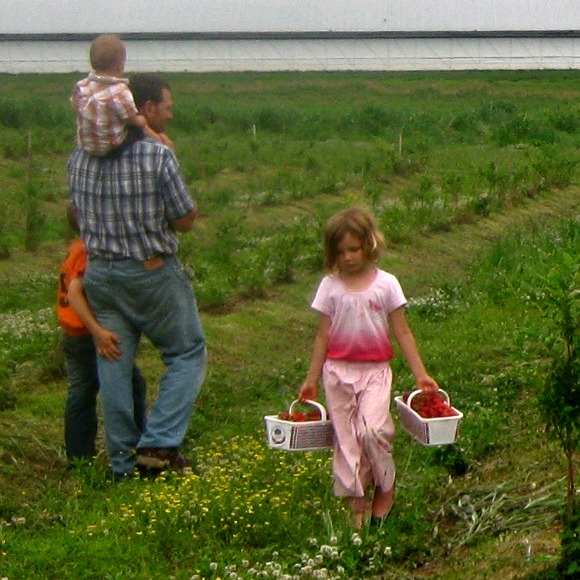
Every year, we put up a bunch of strawberries: canned in jam, frozen for smoothies, dehydrated, or dried as fruit leathers. Our family looks forward to this yearly harvest.
Being that we are somewhat new to middle Tennessee, our plan for this strawberry season was to obtain our many needed gallons from a nearby Amish family that farms organically. We visited their farm over a month prior to reserve the amount of berries we wanted, as well as the day and the time we would be coming to pick them up.
Recently, the calendar fell to our berry pick up day. However, when we arrived at the farm, we were disappointed to find that our strawberries had been sold to another family. Our agreed upon day had been written down incorrectly; sadly, we were out our organic strawberries.
Accepting the setback, we decided to find an alternate plan. We knew it wouldn’t be easy. In our short time here, we have learned that the area in which we live — comparable to many other areas in the country — offers mostly chemical-laden produce. Surprisingly, even the majority of Amish farms heavily spray their food. Whether this is due to convenience or lack of knowledge, I’m not sure.
Still, after arriving home, we found a suitable place through the state U-pick database, and we planned a family strawberry picking outing for the next day.
Shocked!
On our way to the strawberry farm, weaving through the hills east of our home, we emerged from a tunnel of trees only to be startled by an enormous brand name factory chicken farm.
The chicken house — if you could even call it that — was the length of a football field, appearing like an enormous warehouse and sealed from ground to top. One end possessed a retractable, pully-type garage style door, and the other, enormous blowing fans. This hen prison, for lack of a better term, did not possess windows or any means of fresh air.
We drove on, a bit sick to our stomachs at what we were seeing, and a bit thankful that our convictions had led us away from this despicable world of industrialized, profit-centric, and in my eyes, almost criminal farming.
As we approached our destination, the strawberry fields gently popped up amongst the green grasses. We were anxious to stain our faces and hands red, and to do the work needed to stock our shelves and freezer. After piling out of the truck, and meandering through the farm house, with little mouths salivating for the first taste of a ripe berry, our jaws dropped and we were momentarily paralyzed.
You see, before us lay beautifully ripe, red, pesticide-free strawberries. And to the side of us, a meticulously well managed, fenced orchard with dozens of bee hives, and handfuls of roaming hens scratching and digging about.
However, in the background and surrounding the entire back side of the berry farm, appeared the aforementioned confinement warehouses of thousands of soon-to-be grocery store chickens. (We later found out this too was owned by the strawberry farmers.)
The beauty of our affordable, pesticide-free berries was tarnished by the disparagement of animal stewardship.
Immediately, one of Joel Salatin’s books sprung to mind: Folks, This Ain’t Normal. What we were seeing was not normal; it was a world of beauty and disgrace all wrapped up in the dichotomy of a family versus factory farm.
At the End of the Day
That night while processing strawberries picked that day, my husband and I reflected upon our day and all that we had seen and experienced. We decided, together, that every effort would be made to ensure next year’s harvest come from the hands of our Amish friends.
We seek to instill and model good animal husbandry for our children. Strawberry picking with a natural and diverse backdrop — cows roaming, chickens pecking, an old water windmill spinning, and the noise of the clip-clopping of horse and buggy — is more settling.
While we give thanks for this year’s berries, we also hope and pray that next year’s experience will be more inline with what we desire for our yearly strawberry trek.
What about you? Do you have a strawberry or U-pick tradition? Have you encountered a factory farm? Does conventional farming affect your food choices?
...without giving up the foods you love or spending all day in the kitchen!

2 free books:
Eat God's Way
Ditch the Standard American Diet, get healthier & happier, and save money on groceries...
We only recommend products and services we wholeheartedly endorse. This post may contain special links through which we earn a small commission if you make a purchase (though your price is the same).




Our farm is a long and semi-narrow piece of property. On one side the full length, we had an organic farmer. All across the back of our farm the man had a hay field and never sprayed anything. On the other side, the man had an airstrip with a hanger for his ultra-light. Our property is organic, although not certified. Last summer, the man behind us put up 3 of those nasty chicken houses. They are 60′ X 600′ long. Each house holds 35,000 broilers and they run batches every 6 weeks. We are downwind. It does not stink all the time, but when it does stink, it is pretty bad. The airstrip next door is in the shape of an X. That man decided to plant round up ready soybeans in the triangles between his runways. So, he sprayed round up. The organic farmer on the other side quit doing organic, and swung all the way to the other side of the pendulum and is planting GMO, round up ready crops. 🙁
Hello, Marci!
I am sorry to hear of this! Have you found the pesticides to affect the quality of what you are growing? Have you ever had a discussion with the chicken farmer? I often wonder what causes one to enter that type of factory farming in the first place.
By the grace of God, the organic farmer will return back to the good practices he began with, and the wind will blow in favorable directions. : )))) May God bless the work of your farm, for His glory. .
We raise healthy meat. I don’t think he has been in business long enough yet to see any impact being made on us. We do know that coyotes are not unheard of around here, but in the 11 years we have lived here, it was only in the last couple of months we have heard them, and they were back in that corner. The only thing we grow is a family garden and it is behind our house, which is more to the front of our property. We did talk to him and he was less than friendly with us. I do believe the organic farmer was never in it because it was the right thing to do. I think money is his bottom line unfortunately. We keep reminding ourselves that this is God’s farm and He knows all about it. 🙂
You have a good way of looking at things! I do hope that as more and more information surfaces about the harmful effects of GMO’s, that the convictions will outweigh the wallets of these farmers.
Question- you said that you have heard more coyotes- do you think that is because of the chickens???
Every day they have to go through and pull out dead birds. He was throwing them outside. Someone went over and checked it out and reported him for that. Hopefully that problem was taken care of. It would have been a great free food source for them.
Now I understand. : ) That is horrible!
I have to say, I have mixed first impressions on this post. I completely see how an awful chicken factory would ruin the aesthetics of strawberry picking, but I don’t understand shunning a quality strawberry patch because of their neighbors. Sure, the feel-goodness is tainted, and if strawberry picking is as much about the experience as the clean food, then I see how a giant shed could ruin the whole trip. However, unless the strawberries are contaminated, what difference does it make? Shouldn’t we encourage quality, organic farmers for the work THEY do, and not the farm next door (which I’m sure they hate as much as you, but have zero control over)? Avoiding this place is like turning your nose up to a community garden because you can hear traffic while you weed. We can’t always have our agrarian utopia, but we can encourage people who try to make their neighborhood less about factory farming and more about natural, healthy strawberries.
Hi Maria!
Thank you for you honest thoughts- and I have to say that I fully I agree with you. The dichotomy I spoke of in my article, between the family vs. factory farm was regarding this very farm- I fear I may not have been as clear as needed. The same family farm that was growing the lovely berries, was also holding hands with the corporate chicken farm. We questioned how a family farm could be convicted of good growing practices for berries, yet raise chickens so inhumanely- something did not line up. Also, we wondered how good the soil actually was being surrounded by the chicken warehouses. I hope that helps to clarify. : ))))
Ahhhh, now THAT’S a different story! Wow, talk about a walking contradiction. Pesticide free berries on one side, chicken Green Mile on the other!
Agreed. Well said!
Did the chickens belong to the strawberry farmers?
If not, why should they be penalized because of someone else’s business?
It seems to me they should be rewarded for remaining true to whole, untainted food practices.
Hi Julie,
Yes, the chicken warehouses were run by the same people as the berry farm. At first we assumed this to not be the case, and were able to enjoy the picking, however, upon speaking with the owner, she proudly shared with us how many chickens they process every 6 weeks. I was sickened at the number. : (((
this was identical to our picking experience here in PA this year. 🙁 the hen house thing was on our strawberry farm. unfortunately, it is the cheaper priced of the two ipm method farms in my area. i could have gone somewhere much cheaper priced, but their farming methods are very suspect to me, and to my knowledge there are no pick your own organic farms nearby. out also makes me sick and sad 🙁
Hi Amy!
The only reason I can think of in my mind for the prevalence of this type of mixed farming is that the farmers need a way to finance what they truly enjoy- growing food? However, at the end of the day, I personally would not feel that the end would justify the means. I hope you are able to find an affordable alternative. God bless! : )))
Unfortunately, my dad owns a business dedicated to providing the chemicals that goes into the cows’ feed at the feedlot. It is a mixture of dyes, propylene glycol, acid, and a bunch of other stuff I can’t pronounce. My husband managed this business for 5 years, and eating this type of beef was normal for us. Thankfully, the hubs no longer works for my dad, and we haven’t eaten feedlot beef in years. We live less than 100 miles from the Beef Capital of the World, and factory farmed beef (and the awful smell) is sadly the norm around here. Not many people see how wrong it is. All those poor cows, pigs, and chickens! It makes me sick to think that we used to eat that way, and ever so thankful that our eyes were opened to the truth.
Lindsey,
Thank the Lord that you all were able to step outside of what was so much a part of your lives and do what you thought right and good. I can only imagine the difficulty of emerging from something that provided your livelihood. If you do not mind me asking, is your father still in the business? If so, have you had any good discussions with him in regards to the way of life you all have chosen?
Actually, my husband quit working for my dad so that we could move and he could attend Bible college. At the time, it had nothing to do with the morals or health of how the meat was being produced. I guess that was a blessing in hindsight. We learned of Real Food after he graduated from school. My dad is still in the business. He sees nothing wrong with the animals’ disgusting GMO corn ration or the way they’re raised. Where we’re from, there are literally millions of cattle in these CAFOs. It’s almost like you’re in high society if you’re friends with the owners of these operations (which my dad is and we used to be). There’s a lot of money in them and the owners are rich while their workers are poor. This may be something I shouldn’t tell, but as much as I hate what the animals are out through, I equally hate the conditions of the workers. Almost all of the feedlot workers are illegal immigrants, mainly Mexican. They are paid low wages, under the table. Some of them have families back in Mexico and send their wages to their families. They work long days, in extreme temperatures, around that awful smell all day long, while the managers and owners sit in their fancy, air-conditioned offices, staring out their big windows and “oversee”. It’s awful what these men do for a job.
It’s a long story, but we are out of touch with my dad and have been for several years. He still owns his chemical business and is very successful. I wish things were different, but growing up in that lifestyle, I know that it would take a miracle to get my dad or his friends to change their way of thinking.
Lindsey,
I think you should write a book about this!!! You have my complete interest and there is so much there to speak on. Thank you for sharing and being so honest!
We have driven the I-5 in CA many times as my husband is from the Bay Area. The I-5 is scattered with CAFO’s and horrible farming practices. Just a drive along that highway in a day is enough, or was enough for us to rethink our food habits and the way crops are raised, along with the conditions of who (illegal immigrants) is taking care of them. I can only imagine the stories you have growing up among these practices. This is definitely an industry that is not sustainable if we look at “nature as a measure” as Wendell Berry says.
May the Lord turn the heart of your father as he turned ours to Him. My prayers will be with you. Thank you again for sharing a bit of your story!
Wow. Just Wow. Good for you, Lindsey. Does your Father actually eat that poison-laden meat? How’s his health these days?
How can you treat a strawberry better than a chicken? Seems kind of oxymoronic. Although, plants have feelings, too!
After interacting on our Farm, for only a few years now, with a small herd of cattle, some chickens (egg layers) and Large Black Hogs it is an abomination what they are doing to these precious animals in CAFOs. Cows were meant to eat grass!!! That’s why they have four stomachs!!! And it seems that each animal has their own personality! I thank God every day for this opportunity to get ‘in tune’ with all that farming and gardening has to offer. Sometimes it isn’t pretty, but it all evens out.
Our Farm is non-GMO and soy free. We work three Farmer’s Markets this season and it is amazing to me the people who don’t know about GMOs and there shines a great light when people come up to us and know exactly what we are talking about-which is very rewarding.
I agree with Tracey…you should write a book.
Tracey-another great article! Thanks!
Mary,
Thanks for leaving a comment and for your kind and thoughtful words. : )
You all are doing some great work on your farm and I hope the word is getting out there about it through the farmer’s market and happy customers. You all sure have some happy pigs and supplied us with great eggs when our ladies were not laying this winter!!!!
God bless your work!
Thanks for this, Tracey! I enjoyed reading all the comments and discussion just as much as I enjoyed your article!
Thanks, Jenna!!! I appreciate your kind words. : )))) We are a family that gets teased by many of our close friends because of our chickens- we moved them across the country with us because they were our responsibility, they all had names, and we could not part with them any more than our kids could. I try to not harbor ill thoughts, however, I find myself in great dislike of the agri-business farming practices.
God bless you and yours!
We are so blessed with good friends who own an organic farm just 10 miles from us. We raise our own food as well, but we support them in u-pick blueberries and strawberries! Yum!!! Berry season begins officially for them today. Now in drooling!! 😉 I hope next year provides a better experience for you guys! Hopefully around this time 12 months from now you’ll be able to submit a follow-up article, complete with pictures, of your Amish experience!
Sounds like you are blessed, Laura!!! Thanks for your kind words. I hope you are enjoying a beautiful summer with many good berries! : ))) I will be sure to share our experience next year, Lord willing. : ))))
Here in VA, I’ve found only a handful of strawberry farmers that don’t spray with Captan and the like. In my quest for spray-free berries, three years ago I ended up contacting nearly every strawberry patch in the state to find organic or nearly organic berries (it became a little bit of a curiousity project!), and at least at that time, there was only one certified organic grower in the entire state, a 3 hour drive away. Fortunately, I actually did find a family that grows pesticide free berries (just not u-pick), and he was delighted to sell us a good volume of berries and even gave my son a little tour of his farm. Since then, at least two of our local farmers have established naturally grown u-pick patches, and the farm manager (same guy at both places) was very open to talk with me about his growing practices, explaining that his philosophy is to avoid spraying lightly with organic products, and only if necessary, that I could call at any time to find out how any particular crop was grown. They ended up having to use an organic fungicide on the berries this spring for the first time b/c of the volume of rain. One of these two farms asked their facebook fans to come out and help pick out the infected berries and gave buckets of berries away in exchange for the help.
Hello Holly!
Thank you for sharing. : ) Sounds like you have been blessed through networking within your community and finding some good food. My husband and I were just reflecting today, as we left our milk pick up, how blessed we have been to come across, by the sovereignty of God, some good people willing to grow and raise food with Godly stewardship in mind. However, I know also, that these people are definitely not the norm. From what you said, you appear to be making a difference in your community by expressing your concern for well raised produce. I hope that awareness and conviction only increases where you live. : ) I also hope you are still enjoying those berries!